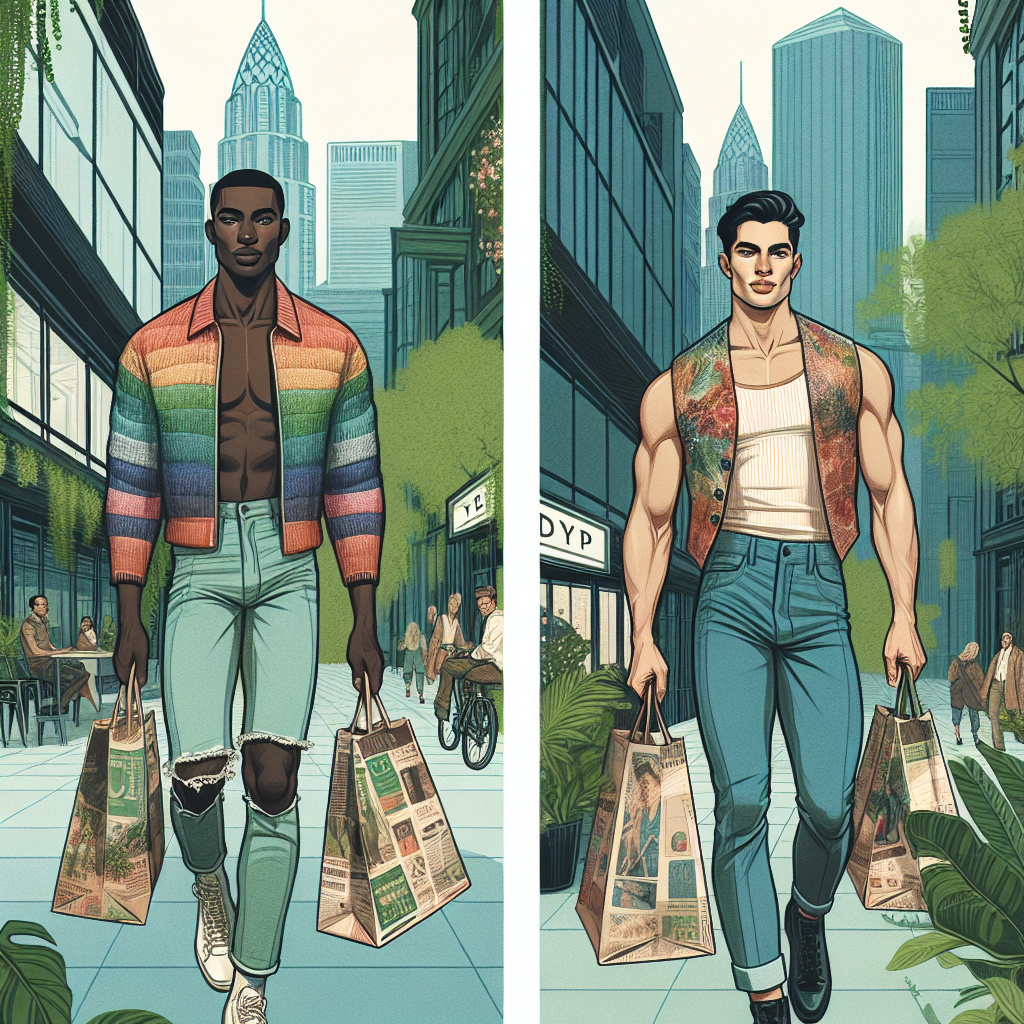In recent years, the fashion industry has been under increasing scrutiny for its environmental impact. From the excessive use of water in production to the massive amounts of waste generated, the industry has been confronted with its unsustainability. In response to this, a growing movement of individuals, particularly gay men, have been redefining fashion with a focus on recycled clothing.
The term “fast fashion” has become synonymous with the industry’s negative impact on the environment. Fast fashion refers to the production of inexpensive, trendy clothing that is mass-produced at a rapid pace. This model not only leads to the overconsumption of clothing but also contributes to pollution and waste generation.
In contrast, recycled clothing offers a sustainable alternative to fast fashion. By repurposing and reusing existing garments, recycled clothing significantly reduces the environmental impact of fashion. Gay men, in particular, have been at the forefront of this movement, embracing recycled clothing as a way to express their individuality and creativity while also taking a stand for the environment.
One of the biggest misconceptions about recycled clothing is that it is unstylish or outdated. However, this couldn’t be further from the truth. In fact, many gay men have made recycled clothing a fashion statement, showcasing their unique and eclectic sense of style. By mixing and matching vintage pieces with modern ones, they are able to create looks that are both fashionable and eco-friendly.
Additionally, the rise of online marketplaces and thrift stores has made it easier than ever for gay men to find high-quality recycled clothing. These platforms offer a wide selection of pre-loved garments, from designer pieces to one-of-a-kind vintage finds. This accessibility has allowed for greater creativity and experimentation with fashion, all while minimizing the impact on the environment.
Furthermore, the popularity of recycled clothing among gay men has also brought attention to the issue of inclusivity in fashion. By embracing recycled clothing, gay men are challenging traditional notions of beauty and style, celebrating diversity and individuality. This inclusive approach to fashion not only benefits the environment but also promotes a more positive and accepting culture within the industry.
In conclusion, the rise of recycled clothing among gay men represents a significant shift in the fashion industry. By redefining what it means to be fashionable and stylish, they are not only reducing the environmental impact of fashion but also promoting inclusivity and diversity. Through their embrace of recycled clothing, gay men are paving the way for a more sustainable and fabulous future in fashion.
